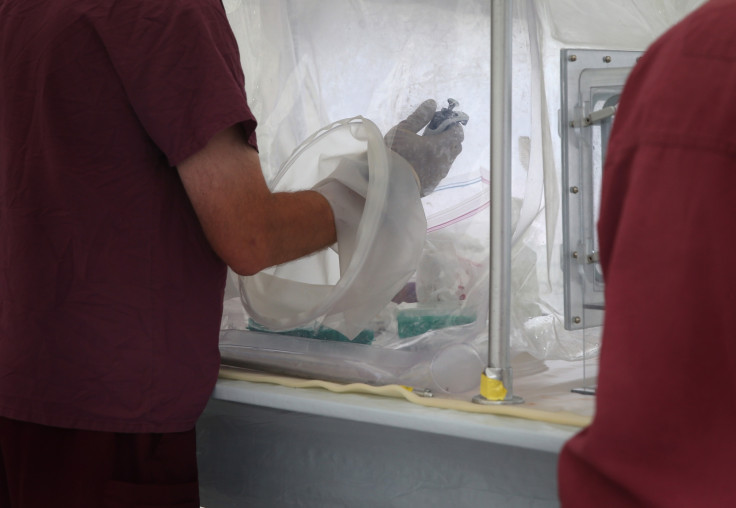Ebola Outbreak: Japanese Researchers Create 'Cheap' 30-Minute Test for Infection

Japanese researchers have developed a new method to detect the presence of the Ebola virus in 30 minutes, using technology that could allow doctors to quickly diagnose infection.
Professor Jiro Yasuda and his team at Nagasaki University say their process is cheaper than the system in use in west Africa, where the disease has already claimed the lives of over 1,500 people.
"The new method is simpler than the current one and can be used in countries where expensive testing equipment is not available," Yasuda told AFP. "We have yet to receive any questions or requests, but we are pleased to offer the system, which is ready to go."
The researchers have created what Yasuda called a "primer", which amplifies only those genes specific to Ebola found in a blood sample or other bodily fluid.
Using existing techniques, ribonucleic acid - biological molecules used in the coding of genes - is extracted from any viruses present in a blood sample.
This is then used to synthesise the viral DNA, which can be mixed with the primers and then heated to around 65C. If Ebola is present, the action of the primers detects DNA specific to the virus in half an hour.
The by-products from the process cause the liquid to become cloudy, providing visual confirmation, Yasuda added.
At the moment, a method called polymerase chain reaction, or PCR, is used to detect Ebola, which requires doctors to heat and cool samples repeatedly and takes up to two hours.
"The new method only needs a small, battery-powered warmer and the entire system costs just tens of thousands of yen [hundreds of dollars], which developing countries should be able to afford," he explained.
Ebola is spread by contact with infected bodily fluids, such as blood and saliva. The fatality rate can reach 90%, but the current outbreak has a mortality rate of around 55%.
As of yet, there is no vaccine or cure, but doctors have trialled the experimental biopharmaceutical drug Zmapp with some success, although limited supplies are not expected to help the 20,000 people predicted to be infected during the outbreak.
The parents of the first British person to contract the disease in West Africa say he is recovering well, the BBC reported today.
William Pooley, 29, who was volunteering as a nurse in Sierra Leone when he was infected, has spent the last week in a special isolation unit at the Royal Free Hospital in London. He was treated with Zmapp.
Five countries are now affected by the virus, including Liberia, Sierra Leone, Guinea and Nigeria. Last week, the World Health Organization confirmed the first case in Senegal.
© Copyright IBTimes 2025. All rights reserved.






















